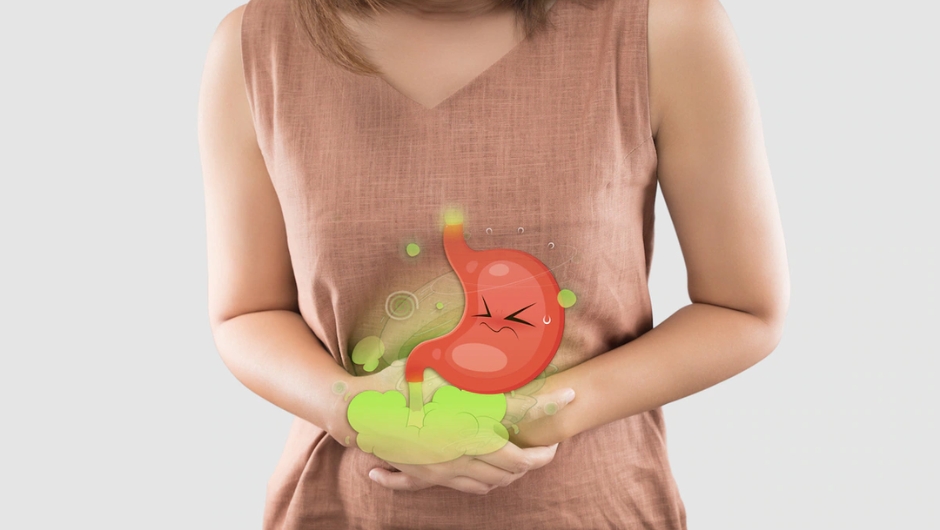3 Reasons Why You Might Have Smelly Gas

Everyone passes gas – it’s a normal part of digestion. But when your gas smells unusually strong, sulfur-like, or rotten, it can be uncomfortable and even embarrassing. Smelly gas is usually a sign that your digestive system isn’t breaking down food properly or that bacteria in your gut are out of balance.
Let’s look at three major reasons why smelly gas happens, what causes it, and what you can do to fix it naturally.
1. Constipation Allows Fermentation to Build Up
When you’re constipated, your stool stays in the colon for a long time instead of moving out regularly. During this time, the bacteria in your gut continue breaking down undigested food particles – especially fiber and proteins.
This bacterial activity leads to a process called fermentation, which produces gases like hydrogen sulfide — the same gas that smells like rotten eggs. The longer your stool sits in the intestines, the stronger the smell can get.
Common Causes of Constipation
- Eating too little fiber (found in fruits, vegetables, and whole grains)
- Not drinking enough water
- Lack of physical activity
- Ignoring the urge to have a bowel movement
- Certain medications (like painkillers or iron supplements)
How to Fix It
- Increase fiber gradually: Include fruits like papaya, apple, pear, and vegetables like spinach, bottle gourd, and pumpkin.
- Stay hydrated: Drink at least 2–3 liters of water daily. Warm water in the morning can help stimulate bowel movements.
- Keep moving: Gentle exercise or yoga poses like Pavanmuktasana and Malasana can improve bowel function.
- Natural remedies: Herbal teas containing triphala, senna, or isabgol can promote smooth elimination and reduce gas buildup.
When stool moves regularly, less fermentation occurs – which means less odor and a healthier gut.
2. SIBO Causes Excess Gas Production in the Wrong Place
SIBO (Small Intestinal Bacterial Overgrowth) occurs when bacteria that are supposed to live in the large intestine start multiplying in the small intestine.
This is a problem because the small intestine is meant mainly for digestion and absorption — not fermentation.
When these bacteria begin fermenting carbohydrates too early, they produce large amounts of gas such as hydrogen, methane, and hydrogen sulfide. These gases can cause:
- Abdominal bloating (especially after meals)
- Foul-smelling gas
- Stomach discomfort or pain
- Irregular bowel habits (constipation or diarrhea)
Why Does SIBO Happen?
- Low stomach acid (which allows bacteria to survive and move upward)
- Slow gut motility — the wave-like movement that pushes food through the intestines
- Prolonged antibiotic use, which disturbs the natural balance of gut bacteria
- Long-term use of acid-reducing medications (like PPIs)
- Structural issues in the gut such as adhesions or scarring
How to Improve It
- Work with a healthcare expert: SIBO is complex and needs proper diagnosis, often through breath tests.
- Dietary changes: Following a low-FODMAP diet or a SIBO-specific diet can reduce fermentation and gas production.
- Support motility: Natural options like ginger, black pepper, and herbal formulas containing triphala can improve movement in the gut.
- Rebalance gut bacteria: Use high-quality probiotics (under professional guidance) and include prebiotic foods like garlic, onions, and asparagus once symptoms improve.
If left untreated, SIBO can lead to nutrient deficiencies, fatigue, and long-term digestive discomfort. So early detection and management are key.
3. Incomplete Protein Breakdown
Protein is an essential part of your diet, but it needs to be properly digested. Digestion of protein starts in the stomach, where stomach acid and enzymes break it into smaller components called amino acids.
However, when stomach acid levels are too low or when digestion is sluggish, proteins don’t fully break down. These undigested proteins travel to the colon, where bacteria ferment them, producing ammonia and sulfur compounds — both of which smell unpleasant.
What Causes Incomplete Protein Digestion?
- Low stomach acid: Commonly caused by H. pylori infection or long-term antacid use.
- SIBO: When bacteria interfere with normal digestive processes.
- Overeating protein: Eating large portions of meat or eggs in one meal can overload your digestive system.
- Eating under stress: When you eat in a hurry or while anxious, your body produces less digestive juice.
How to Support Better Protein Digestion
- Chew thoroughly: Proper chewing signals the body to release stomach acid and enzymes.
- Avoid overeating: Eat moderate portions and stop before you feel overly full.
- Include digestive aids: Ginger, lemon water before meals, or herbs like hing, ajwain, and black pepper can stimulate digestion naturally.
- Balance your meals: Combine proteins with fiber-rich vegetables to support smoother digestion.
- Test for H. pylori: If symptoms like bloating, burping, or acidity are frequent, get tested and treated.
When proteins are digested efficiently, gas becomes minimal and odor-free — a sign of a well-functioning digestive system.